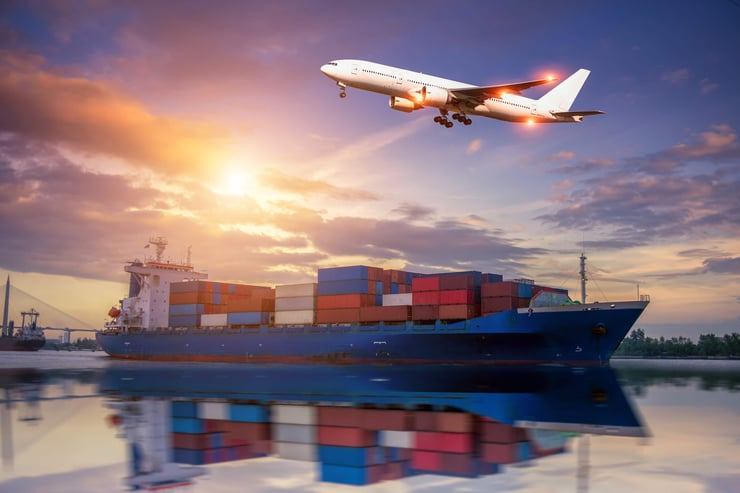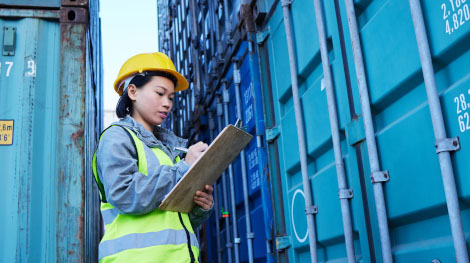The People’s Republic of China is one of the world’s largest traders, with the nation holding the record for the world’s largest exporter of goods since 2009. As a result, importing goods from China is almost inevitable for modern traders.
In this blog, WTA will answer a common question - what are the best Incoterms for importing from China.
What are Incoterms?
Incoterms are internationally used commercial terms that help bring transparency and clarity to international shipping and logistics. More specifically, these terms are generally focussed around responsibility, i.e., at what stage the shipper or the buyer is responsible for the cargo.
Incoterms come in a host of different shapes and sizes, each with its own pros and cons depending upon what you’re shipping and how you’re shipping it (by sea, air, or land).
Due to the global design of these terms, you must have a firm understanding of Incoterms. WTA has a wealth of information on Incoterms, learn more about what Incoterms are best suited to your business here.
Best Incoterms for Importing from China
WTA recommends that the consignee retains control of the shipment, allowing for full visibility of costs associated with the shipment. As a result, the FOB and Ex-Works Incoterms are the most commonly used and recommended Incoterms for importing from China.
Free on Board (FOB):
This rule is generally used when a seller has straightforward access to a ship or vessel.
FOB means that the goods are delivered to the buyer via a vessel that the buyer has chosen. After the goods are on the ship, the buyer bears all costs.
The FOB Incoterm only applies to sea freight, so if you’re shipping your goods from China via sea, the FOB Incoterm is WTA’s Incoterm of choice.
FOB Incoterms helps both the shipper and the buyer, laying out each party’s responsibilities and giving each party more control while the cargo is in their respective territory.
For the buyer, FOB gives them the most control over logistics and the cost of shipping, allowing the buyer to choose their shipping methods. Control over shipping method and cost means that FOB Incoterms can also be the most cost-effective method.
EX-Works (EXW):
EXW means that the goods have been delivered to the buyer once they've been placed at an agreed location.
The seller is under no obligation to load the delivery onto any collecting vehicle or clear them for export. This rule places very few obligations on the seller.
The EXW Incoterm means that the buyer, and the buyer alone is responsible for the goods. As a result, EXW terms allow the buyer to receive a clear picture of the costs required to ship their goods.
The buyer is in complete control of the shipment, allowing lucid visibility and removing any worries with suppliers about cost inflations.
Other Incoterms used for Importing from China
WTA recommends controlling the shipment, so Incoterms that place responsibility for the cargo on the origin rather than the destination isn’t always recommended. Outlined below are some Incoterms that put the responsibility more on your supplier.
Cost insurance and freight (CIF):
This Incoterm means that the goods are delivered to the buyer on board the ship. The risk of damage transfers to the buyer once the goods are on board the ship.
The seller is also responsible for arranging insurance for the goods’ transport to an agreed port.
While it is possible to ship from China under the CIF Incoterm, this requires established relationships with overseas partners, with most conducting business in this manner for decades.
In addition to CIF, Delivered at Place Unloaded (DPU) and Delivered Duty Paid (DDP), are also used but don’t offer the complete visibility of the costs associated:
- DPU means that the risk is transferred to the buyer once goods are unloaded from the transport and brought to an agreed-upon destination. This rule requires the seller to unload the goods at the destination, so any seller should ensure they can unload the goods at the agreed destination.
- DDP means the goods are delivered once the goods have cleared customs and are ready for unloading. The seller is responsible for bringing the goods to the destination and bears all risk up to this point.
WTA has over a hundred years of experience in international shipping, so when it comes to logistics support and advice, you’d be hard-pressed to find a better freight partner for shipping good from China to Europe/UK. For more information about our shipping services from China, read below.







